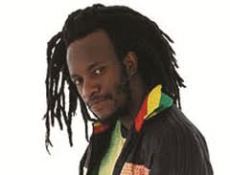I do not usually deliberately listen to the so-called ‘urban grooves’ music by the young Zimbabwean artists, mainly because most of it lacks originality. Recently though, I just happened to watch dance hall artist Winky D’s video for his song ‘Vashakabvu’ (the late) and I must say, I developed a new respect for urban-groovers and musical artists in general. As we head towards the elections this month end, the role played by musicians in giving social commentary through sociopolitical satire is almost comparable to the fourth estate role of the media.
In ‘Vashakabvu’, Winky D ‘writes’ a two paragraph letter to the dearly departed of this country, those that never made it into the 90s’, informing them of the happenings and changes that have since taken place in this country over the past decade. He says ‘zvinhu zvachinja rough’ (things have changed drastically) since they died. Among other things, he alludes to how the Chinese are opening up factories willy-nilly in Zimbabwe, how new and latest technologies coupled with piracy have cheapened and made music so easily available that artists’ families no longer enjoy benefits from royalties. He also makes reference to the ‘born-Facebook’ young people of this country, who have lost the moral compass and get away with skimpy dressing and immoral behavior by simply telling you ‘hausi kuziva zvirikuitika’ (you don’t know what’s happening).
But apart from these witty and very hard-hitting words, the subsequent verses are more poignant and speak satirically of some of the most noteworthy developments and governance issues in this country. Winky says:
Mari yoshandiswa muno ndeye kuAmerica, Zim dollar hapana kana achariyeuka.
(The currency being used now is American, nobody even remembers the Zimbabwean dollar).
This verse speaks of the time when dollarization happened and how much Zimbabweans never want to hear of the Zim dollar again following the traumatic crisis years of food shortages. So much for sovereignty.
Hakuchina macallbox, kwaane macellular.
(There are no longer any telephone booths, people now use mobile phones).
Maboys ‘khaya’ amakavaka aya takapunza, zvakanzi haasi pamutemo asi hamuna kutiudza.
(The home extensions and backyard cottages you built were destroyed because they were apparently illegal, even though nobody highlighted this at the time).
This verse brings very forlorn memories of the government sanctioned urban ‘clean up’ Murambatsvina exercise that left hundreds of families homeless in the winter of 2005.
Magovernment ave mairi vanhu takachooser, takanovhota asi pakashaya akaruza.
(We now have two governments because even though we went to the polls to vote and choose, nobody lost.)
Depending on which version of the song you get, the last verse is replaced by the politically correct alternative words: ‘Kwava ne Unity Government ndinovimba makaudzwa, mapato enyika obatana nyika tosimudza’. I like to call this the ZBC version. Loosely translated, it says that we now have a government of national unity that has led to the unification and up-liftment of the country.
The long and short of it, with the GNU, we perfected a new system in which in a race, nobody actually loses. Next week as we go again to the polls, it is my sincere hope and that of many a Zimbabwean, that in this election, results will be announced in far less than a month and not everyone will win. It will not only be fair, but frankly we are tired of this charade of a bloated-for-nothing government.


